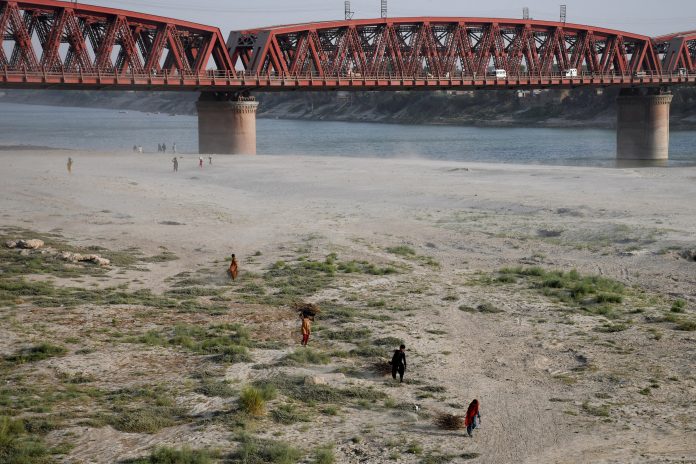Pakistan is preparing international legal measures in response to India’s suspension of a key river-sharing treaty, a government minister said, amid heightened tensions between the neighbouring countries following an attack on tourists in Indian-controlled Kashmir.
Aqeel Malik, state minister for law and justice, said on Monday evening that Islamabad was working on plans for at least three different legal options, including raising the issue with the World Bank, which brokered the agreement.
Malik also said that recourse to the Permanent Court of Arbitration or the International Court of Justice in The Hague was being considered, where Pakistan could argue that India had violated the 1960 Vienna Convention on the Law of Treaties.
“Consultations on the legal strategy are almost complete,” Malik said, adding that a decision on which cases to pursue would be taken “in the near future” and would likely include more than one avenue.
Indian officials responsible for water resources did not respond to a request for comment.
Last week, India suspended the 1960 Indus Waters Treaty, brokered by the World Bank, after an attack in Kashmir, saying it would remain suspended until “Pakistan stops supporting cross-border terrorism.”
Attack on Pakistan is “inevitable”
Following last week’s terrorist attack in Kashmir, which killed 26 people, an Indian attack on Pakistan is inevitable, said Pakistani Defence Minister Khawaja Asif.
“We have reinforced our forces because it is something which is imminent now. So in that situation some strategic decisions have to be taken, so those decisions have been taken,” Asif said. According to him, the military warned the Pakistani government of a possible Indian attack.
Islamabad has appealed to friendly countries, including the Persian Gulf states and China, and has also informed the UK and the US about the situation, the minister said.
Earlier, Asif said that the world should be concerned about the prospect of a full-scale conflict involving two countries with nuclear weapons.
“A clash between two nuclear powers is always a cause for concern,” he said. “If something goes wrong, this confrontation could end tragically,” the minister added.
Why Pakistan-India tensions escalated
On April 22, armed men shot and killed a group of tourists in the town of Pahalgam, located in the Indian-administered territory of Jammu and Kashmir, killing 26 people. Responsibility for the attack was claimed by the Resistance Front, a group linked to the terrorist organisation Lashkar-e-Taiba. After the attack, India claimed that two of the militants were Pakistani. Islamabad denied any involvement in the attack and called for a neutral investigation.
The attack led to increased tensions between the countries, with India and Pakistan taking measures against each other. In particular, the Indian Ministry of Foreign Affairs announced the suspension of visas for Pakistanis and the cancellation of existing documents, while Pakistan decided to close its airspace to Indian airlines and suspend trade with the country.
On April 24, Pakistani troops fired on several Indian posts along the Line of Control in Jammu and Kashmir, Indian television channel NDTV reported, citing military sources. According to them, the Indian army responded to the shelling, with security forces responding “effectively” to the actions of the Pakistani army.
